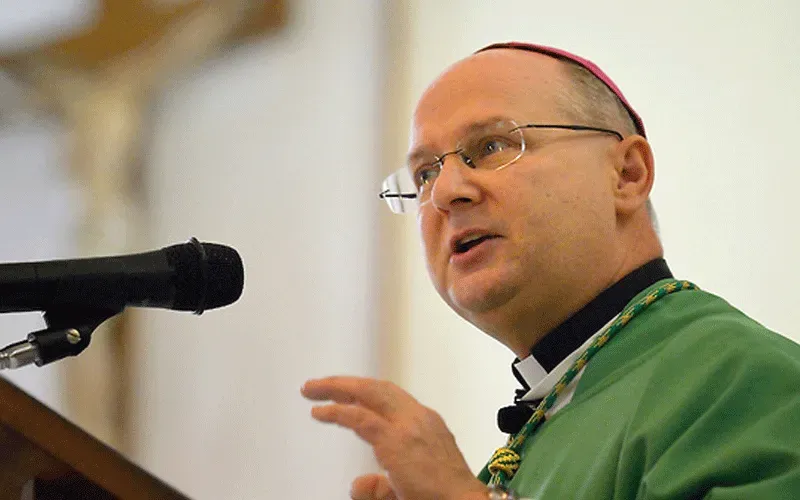He said, “It is a complicated issue, especially when you have people who don't feel empowered, especially because they have no job, they have no future. They tend to become dependent on what are very toxic relationships, toxic situations. They don't know how to get out of it because their self-esteem is so low.”
The American-born Vatican diplomat lauded efforts by the Catholic Church in tackling “abuse of minors and adults” as well as gender violence in the region, saying, “I think we've put in very good programs to address this when it happens; however, we need to do a little better … We need to put a lot more emphasis on safety and prevention, safeguarding. There's a lot more that we need to do.”
“I see in some areas that have great safeguarding policies in place, they are usually places that have a lot more resources at their disposal such as money or trained personnel,” he said.
The 59-year-old representative of the Holy Father in the five Southern African countries encouraged the Catholic Church in the region to seek funds from the international community to help poor communities in addressing issues related to abuse.
“One of the problems we have is that rural areas in particular, or very small Dioceses that are very poor do not have those resources; they don't have trained personnel, nor do they have the money to send people off to study and get the type of formation they need to set up really effective safeguarding practices in place”, said Archbishop Wells.
He added, “This is where I think the Universal Church can be of great assistance, and we've already seen some of this. There are lots of places like Misereor, a number of these programs throughout the international community that are related with the Church, which offer funding, and they're now focusing a lot of funding on helping people get formed, on prevention of abuse, safeguarding policies, et cetera.”
He further said, “It needs to be developed much more, but if we can do that and get those things in place, we could then in turn offer to assist the civil community around us and also putting those things in place, and I think that can be a real contribution to civil society in the future in this area.”
In the October 3 interview, Archbishop Wells also spoke about the impact of mental health on young people and urged community members in the Southern African region to “get rid of the stigma that having a problem with your mental health somehow makes you less than others.”
“The mental health question is not just here, it's everywhere. I mean, look at what's going on in the Western world right now, we have a mental health crisis across the board as far as I'm concerned,” Archbishop Wells said.
He continued, “We even have a mental health crisis within the Church. Part of what we, I think, see with the struggles of many Priests and Religious today are mental health concerns, mental health problems.”








